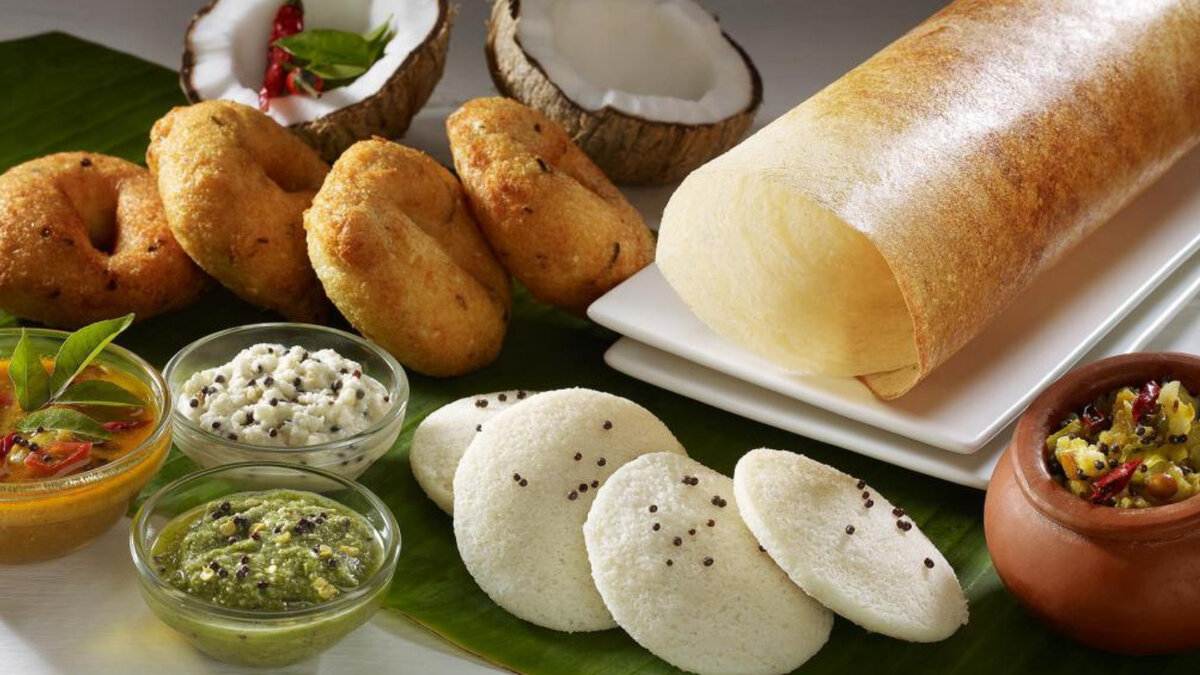What is the Best Time to Eat in Ayurveda?
In Ayurveda, the traditional system of medicine originating from ancient India, the concept of optimal timing for meals is considered crucial for maintaining good health and overall well-being. According to Ayurveda, the best time to eat varies depending on factors such as an individual’s dosha (body constitution), the quality of food, and the digestive capacity.
Furthermore, Ayurvedic eating recognizes the interconnectedness between our bodies and the natural world. It encourages us to align our eating patterns with the natural cycles of the day and the seasons.
By following this rhythm, we harmonize our internal systems with the external environment, promoting overall balance and vitality. Ayurvedic eating is not a rigid set of rules but a flexible and adaptable approach to nourishment.
It encourages us to listen to our bodies, honor our unique needs, and make conscious choices that promote health and well-being. With Ayurvedic eating, we embark on a journey of self-discovery, understanding, and self-care—a journey that leads to a profound connection between our bodies, minds, and the nourishment we receive from the world around us.
Introduction to Ayurvedic Eating
Ayurvedic eating is rooted in the ancient wisdom of Ayurveda, a holistic system of medicine that originated in India thousands of years ago.
Ayurveda views food not just as a source of nutrition but as a powerful tool for healing and maintaining balance in the body, mind, and spirit. It recognizes that each individual is unique, with specific dietary needs based on their dosha, or body constitution.
The doshas—Vata, Pitta, and Kapha—are the three fundamental energies that govern the functioning of our bodies. Ayurveda identifies these doshas in each person, and understanding their unique combination is essential for creating a personalized approach to nutrition.
Ayurvedic eating goes beyond simply choosing the right foods; it also emphasizes the importance of considering the qualities of the foods we consume.
In Ayurveda, each food has its own inherent qualities, such as hot or cold, heavy or light, moist or dry. By incorporating a variety of tastes and qualities into our meals, we can create a harmonious balance that supports our well-being.
The Doshas and their Influence on Meal Timing
Understanding your dosha is essential in determining the best time to eat in Ayurveda. Each dosha has its own unique characteristics and reacts differently to different circumstances, including meal timings.
1. Vata: Individuals with a dominant Vata dosha tend to have a light and variable appetite. They should eat their meals at regular intervals to maintain stable energy levels. It is advisable for them to have their meals around 7 a.m., 12 p.m., and 6 p.m.
2. Pitta: Those with a Pitta dosha have a strong appetite and efficient digestion. They should have their meals at around 8 a.m., 1 p.m., and 7 p.m. It is important for Pitta types to avoid eating late at night to prevent disruptions in sleep.
3. Kapha: Kapha individuals have a slow metabolism and may not feel hungry in the morning. Their best meal timings are around 9 a.m., 2 p.m., and 8 p.m. They should avoid heavy and oily foods to prevent sluggishness.
Ayurvedic Perspective on Breakfast
Breakfast holds a significant place in Ayurveda as it kickstarts the digestive fire and provides energy for the day ahead. It is recommended to have a light and easily digestible breakfast, ideally consumed within one hour of waking up. Incorporating warm, cooked foods such as porridge, fresh fruits, and herbal teas can help balance the doshas.
Ideal Lunchtime in Ayurveda
Lunch is considered the most important meal of the day in Ayurveda. The digestive fire, known as Agni, is at its peak during this time, enabling efficient digestion and nutrient absorption. It is recommended to have lunch between 12 p.m. and 1 p.m. A well-balanced meal consisting of whole grains, vegetables, legumes, and a moderate amount of healthy fats is recommended.
Ayurvedic Insights on Dinner
Dinner should ideally be the lightest meal of the day and consumed a few hours before bedtime. Ayurveda advises having dinner before 7 p.m. to allow for proper digestion before sleep. Light, easily digestible foods such as soups, steamed vegetables, and lean proteins are recommended. Avoiding heavy, oily, and spicy foods at dinner helps prevent indigestion and disturbances in sleep.
Snacking and Ayurveda
Ayurveda acknowledges the need for occasional snacks but encourages mindful and healthy choices. Snacking should be done when genuinely hungry, and it is essential to avoid mindless eating. Opt for fresh fruits, nuts, seeds, and herbal teas as nutritious snack options. Avoid processed and sugary snacks, as they can imbalance the doshas and lead to digestive issues.
The Importance of Digestive Fire
Ayurveda places great emphasis on maintaining a robust digestive fire, or Agni. A healthy Agni ensures efficient digestion, absorption, and assimilation of nutrients. To strengthen Agni, Ayurveda suggests incorporating spices such as ginger, cumin, coriander, and fennel into meals. These spices kindle the digestive fire and aid in better digestion.
Ayurvedic Tips for Optimal Digestion
Apart from meal timing, Ayurveda provides several guidelines for optimizing digestion:
1. Eat in a calm and peaceful environment.
2. Chew food thoroughly to aid digestion.
3. Avoid overeating and leaving the stomach overly full.
4. Avoid drinking large amounts of water with meals, as it can dilute digestive juices.
5. Take short walks after meals to aid digestion.
6. Avoid eating when emotionally disturbed or stressed.
Eating in Sync with Nature’s Rhythm
Ayurveda emphasizes aligning our eating patterns with the natural cycles of the day. Having meals at regular intervals helps maintain stability and balance. Following a consistent routine promotes overall well-being and supports optimal digestion.
Hydration and Ayurvedic Eating
Proper hydration is essential for good digestion and overall health. Ayurveda recommends sipping warm water throughout the day to maintain hydration and support digestion. Avoiding chilled or iced beverages is advised, as they can weaken the digestive fire.
Mindful Eating in Ayurveda
Mindful eating is an integral part of Ayurvedic principles. It involves being present and fully aware while eating, savoring each bite, and paying attention to the body’s signals of hunger and satiety. This practice enhances the enjoyment of food and promotes healthy digestion.
Ayurvedic Eating and Weight Management
Ayurveda considers maintaining a healthy weight as an essential aspect of overall well-being. By following Ayurvedic principles of eating, individuals can regulate their digestion, optimize nutrient absorption, and support a balanced weight.
Ayurveda and Fasting
Fasting has been practiced in Ayurveda for centuries as a means of detoxification and rejuvenation. Intermittent fasting, when done under proper guidance, can help reset digestion, improve metabolic function, and promote overall wellness.
Ayurvedic Herbs and Spices for Digestion
Ayurveda incorporates various herbs and spices known for their digestive properties. Commonly used herbs and spices include ginger, turmeric, cumin, coriander, fennel, and mint. These ingredients not only enhance the flavor of dishes but also support healthy digestion.
Conclusion
In conclusion, Ayurveda emphasizes the importance of meal timing for optimal digestion and overall well-being. Understanding one’s dosha and following the recommended meal timings can help maintain balance and harmony within the body.
By adopting Ayurvedic principles of eating, individuals can promote healthy digestion, enhance nutrient absorption, and experience improved overall health.
FAQs on Best Time to Eat in Ayurveda
1. What are the three doshas in Ayurveda?
Vata, Pitta, and Kapha are the three doshas in Ayurveda. They represent different body constitutions and govern various functions in the body.
2. Can I have a heavy dinner in Ayurveda?
It is advisable to have a light dinner in Ayurveda, a few hours before bedtime, to support digestion and prevent sleep disturbances.
3. How can I strengthen my digestive fire?
Ayurveda suggests incorporating spices such as ginger, cumin, coriander, and fennel into meals to strengthen the digestive fire.
4. Is intermittent fasting beneficial in Ayurveda?
Intermittent fasting, when done under proper guidance, can be beneficial in Ayurveda as a means of detoxification and rejuvenation.
5. What are some Ayurvedic herbs and spices for digestion?
Ayurvedic herbs and spices such as ginger, turmeric, cumin, coriander, fennel, and mint are known for their digestive properties and can be incorporated into meals.


























